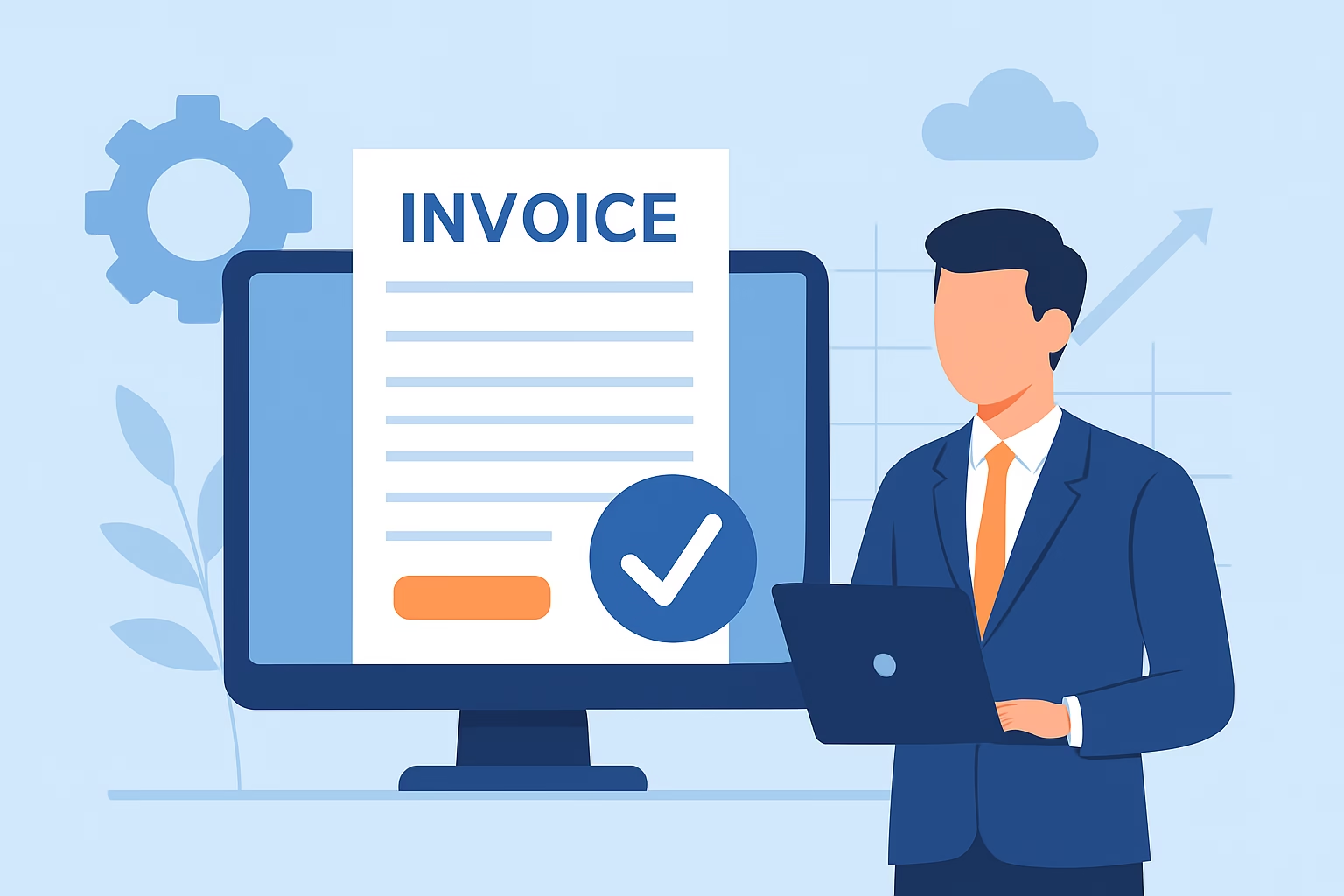The Ministry of Finance has released two new decisions outlining how and when businesses across the country must adopt the upcoming Electronic Invoicing System (E-Invoicing). Moreover, this campaign is a part of the strategy of the United Arab Emirates (UAE) to boost its transition into a fully digital economy. Hence, it makes business operations faster, clearer, and globally aligned.
What is the Electronic Invoicing System?
The Electronic Invoicing System needs companies to issue and receive invoices digitally instead of using paper. Moreover, it applies to Business-to-Business (B2B) and Business-to-Government (B2G) transactions. However, businesses might also voluntarily accept e-invoicing before it becomes compulsory.
The system is created on Peppol standards, an international framework widely used in Europe and Asia. Now, it will help the UAE companies to streamline cross-border trade, reduce errors, and improve efficiency.
Key Requirements for UAE Businesses
- Every transaction must generate an electronic invoice.
- If corrections, cancellations, or refunds are required, companies must issue an electronic credit note.
- Businesses must appoint an Accredited Service Provider (ASP), approved by the Ministry of Finance, to manage e-invoicing.
- Both sender and receiver must comply with invoicing rules via their chosen ASP.
- Invoices must include all mandatory information as specified by the Ministry.
Phased Implementation Timeline
The rollout is going to take place in stages. Below is the list of these stages:
- July 1, 2026 – Pilot Phase: Selected businesses begin trial implementation.
- January 1, 2027 – Large Businesses: Companies with annual revenue of Dh50 million or more must comply. Deadline to appoint an ASP: July 31, 2026.
- July 1, 2027 – SMEs: Companies with revenue below Dh50 million must comply. ASP appointment deadline: March 31, 2027.
- October 1, 2027 – Government Entities: All government departments must comply. ASP appointment deadline: March 31, 2027.
Why This Matters
The introduction of this e-invoicing is expected to give the following benefits:
- Reduce administrative costs and paperwork.
- Improve tax and financial reporting accuracy.
- Enhance compliance and transparency.
- Strengthen the UAE’s position as a business-friendly global hub.
The UAE Ministry of Finance has made it clear that e-invoicing is going to become the new standard. Moreover, businesses are advised to start the preparation for this change early. In addition, they are also suggested to follow the official updates and work with accredited providers to ensure smooth compliance with this rule. In short, you must start taking steps for this change.
Source:
Read more:




[…] UAE Ministry of Finance Announces Phased Rollout of Electronic Invoicing System […]
[…] UAE Ministry of Finance Announces Phased Rollout of Electronic Invoicing System […]